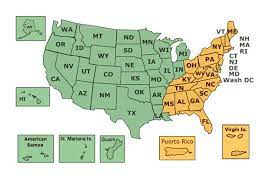VA Tuition Assistance: Supporting Veterans’ Educational Goals
For many veterans, transitioning from military service to civilian life can be a challenging process. One crucial aspect of this transition is pursuing higher education to enhance career prospects and personal growth. Recognizing the importance of education, the Department of Veterans Affairs (VA) offers a comprehensive Tuition Assistance program to support veterans in achieving their educational goals.
The VA Tuition Assistance program provides financial assistance to eligible veterans and active duty service members, helping them cover the costs of tuition and fees for approved educational programs. This valuable benefit can significantly alleviate the financial burden associated with pursuing higher education.
One of the key advantages of VA Tuition Assistance is its flexibility. It can be used for various educational pursuits, including college degree programs, vocational training, apprenticeships, and certification courses. This versatility allows veterans to choose the path that aligns with their interests and career aspirations.
To qualify for VA Tuition Assistance, veterans must meet certain eligibility criteria. Generally, individuals must have served on active duty for at least two years or more and have remaining entitlement under the Montgomery GI Bill or Post-9/11 GI Bill. Additionally, applicants should be enrolled in an approved educational institution and pursuing an eligible program.
The amount of assistance provided by the VA varies depending on factors such as length of service and type of educational program pursued. The program covers a significant portion of tuition expenses, up to certain limits established by law. By offering this support, the VA aims to ensure that veterans have access to quality education without facing overwhelming financial barriers.
Applying for VA Tuition Assistance is a straightforward process. Veterans need to complete an application form through the VA’s online portal or submit a paper application if preferred. It’s essential to carefully review eligibility requirements and provide all necessary documentation during the application process to facilitate a smooth approval.
In addition to financial aid, VA Tuition Assistance also offers counseling services through its Education and Career Counseling program. This counseling can help veterans make informed decisions about their educational and career paths, ensuring they maximize the benefits of their tuition assistance.
The VA Tuition Assistance program serves as a testament to the nation’s commitment to supporting its veterans. By investing in their education, the VA empowers veterans to gain new skills, expand their knowledge, and achieve personal growth. Moreover, this program enhances veterans’ employability and opens doors to rewarding career opportunities.
If you are a veteran or an active duty service member considering pursuing higher education, exploring VA Tuition Assistance is highly recommended. Take advantage of this valuable benefit that honors your service and supports your educational journey. The VA is dedicated to helping you succeed in reaching your academic goals and building a brighter future.
Remember, education is not only an investment in yourself but also a way to continue serving your country in new and meaningful ways.
Frequently Asked Questions about VA Tuition Assistance for Veterans and their Spouses
- Is tuition assistance the same as GI Bill?
- Is tuition assistance a VA benefit?
- What is the max the VA will pay tuition?
- Will the VA pay for my wife to go to school?
Is tuition assistance the same as GI Bill?
While both tuition assistance and the GI Bill are programs that provide financial support for educational pursuits, they are not the same thing. It’s important to understand the distinctions between these two programs.
Tuition assistance is provided by the military branches themselves, such as the Army, Navy, Air Force, Marine Corps, and Coast Guard. It is primarily available to active duty service members and offers financial assistance for tuition and fees directly related to education. Each branch has its own specific guidelines and limitations regarding eligibility and funding amounts.
On the other hand, the GI Bill is a federal program administered by the Department of Veterans Affairs (VA). It offers a range of educational benefits to eligible veterans, including financial support for tuition and fees, housing allowances, books and supplies stipends, and more. The GI Bill encompasses several different versions or chapters: Montgomery GI Bill (MGIB), Post-9/11 GI Bill, Reserve Educational Assistance Program (REAP), Veterans Educational Assistance Program (VEAP), among others. Each chapter has its own criteria and benefits.
While tuition assistance is generally available only while serving on active duty or in certain reserve components, the GI Bill benefits can be used after leaving military service. The GI Bill provides veterans with more flexibility in choosing their educational institution or program of study.
It’s worth noting that in some cases, individuals may be eligible for both tuition assistance and GI Bill benefits simultaneously. However, there are rules in place to prevent “double-dipping,” where funds from both programs are used for the same expenses.
In summary, while both tuition assistance and the GI Bill offer financial support for education-related expenses, they differ in terms of eligibility requirements, funding sources, timing of use (during active duty vs. after military service), and overall scope of benefits provided. Understanding these differences can help veterans make informed decisions about utilizing these valuable resources to pursue their educational goals.
Is tuition assistance a VA benefit?
Yes, tuition assistance is a benefit provided by the Department of Veterans Affairs (VA) to eligible veterans and active duty service members. The VA offers various education-related benefits, including the Tuition Assistance program, to support individuals in pursuing higher education and vocational training. This program helps veterans cover the costs of tuition and fees for approved educational programs, enabling them to achieve their educational goals and enhance their career prospects.
What is the max the VA will pay tuition?
The maximum amount the VA will pay towards tuition depends on the specific educational program and the type of GI Bill benefits being utilized. Here are some general guidelines:
- Post-9/11 GI Bill: Under this program, the VA pays up to the highest in-state public undergraduate tuition and fees. If attending a private or foreign school, there is a yearly maximum limit set by law. Additionally, eligible veterans may be entitled to a monthly housing allowance and a stipend for books and supplies.
- Montgomery GI Bill (MGIB): The MGIB has different payment rates depending on whether an individual served on active duty or in the Selected Reserve. For full-time students, the MGIB generally pays a fixed monthly rate that can be used towards tuition and other educational expenses.
- Montgomery GI Bill – Selected Reserve (MGIB-SR): The MGIB-SR provides benefits for members of the Selected Reserve, including Army Reserve, Navy Reserve, Air Force Reserve, Marine Corps Reserve, Coast Guard Reserve, Army National Guard, and Air National Guard. Similar to the MGIB, it offers a fixed monthly rate for full-time students.
It’s important to note that these payment rates are subject to change based on factors such as legislative updates or changes in tuition costs. To get accurate and up-to-date information about specific payment rates and limits for your situation, it is recommended to visit the official VA website or consult with a VA representative who can provide personalized guidance based on your circumstances.
Remember that while the VA provides valuable financial assistance through tuition benefits, it’s essential to consider additional expenses such as housing, books, and supplies when planning for your education.
Will the VA pay for my wife to go to school?
Yes, the Department of Veterans Affairs (VA) offers educational benefits that can extend to eligible dependents of veterans. The specific program that provides educational assistance to dependents is called the Survivors’ and Dependents’ Educational Assistance (DEA) program.
Under the DEA program, spouses and children of veterans may be eligible for financial assistance to pursue their educational goals. This benefit can be used for various types of educational programs, including degree programs at colleges and universities, vocational training, apprenticeships, and certification courses.
To qualify for DEA benefits, certain eligibility criteria must be met. Generally, spouses are eligible if they are married to a veteran who is permanently and totally disabled due to a service-connected condition or who died while on active duty or as a result of a service-connected condition. Children may be eligible if they are between the ages of 18 and 26 (with some exceptions) and have a parent who meets the qualifying criteria.
It is important to note that DEA benefits have limitations in terms of duration and financial coverage. The program typically provides up to 45 months of educational assistance, which can be spread across multiple dependents if applicable. The amount provided is determined by factors such as the type of program pursued and the number of credit hours taken.
To apply for DEA benefits, you will need to complete an application through the VA’s online portal or submit a paper application if preferred. Make sure to carefully review the eligibility requirements and provide all necessary documentation during the application process.
If you have further questions or need more specific information regarding your individual circumstances, it is advisable to contact the VA directly or consult with a Veterans Service Officer who can guide you through the process and provide personalized assistance.
The VA recognizes the importance of supporting veterans’ families in their pursuit of education, so exploring available benefits for your wife’s education is definitely worth considering.



